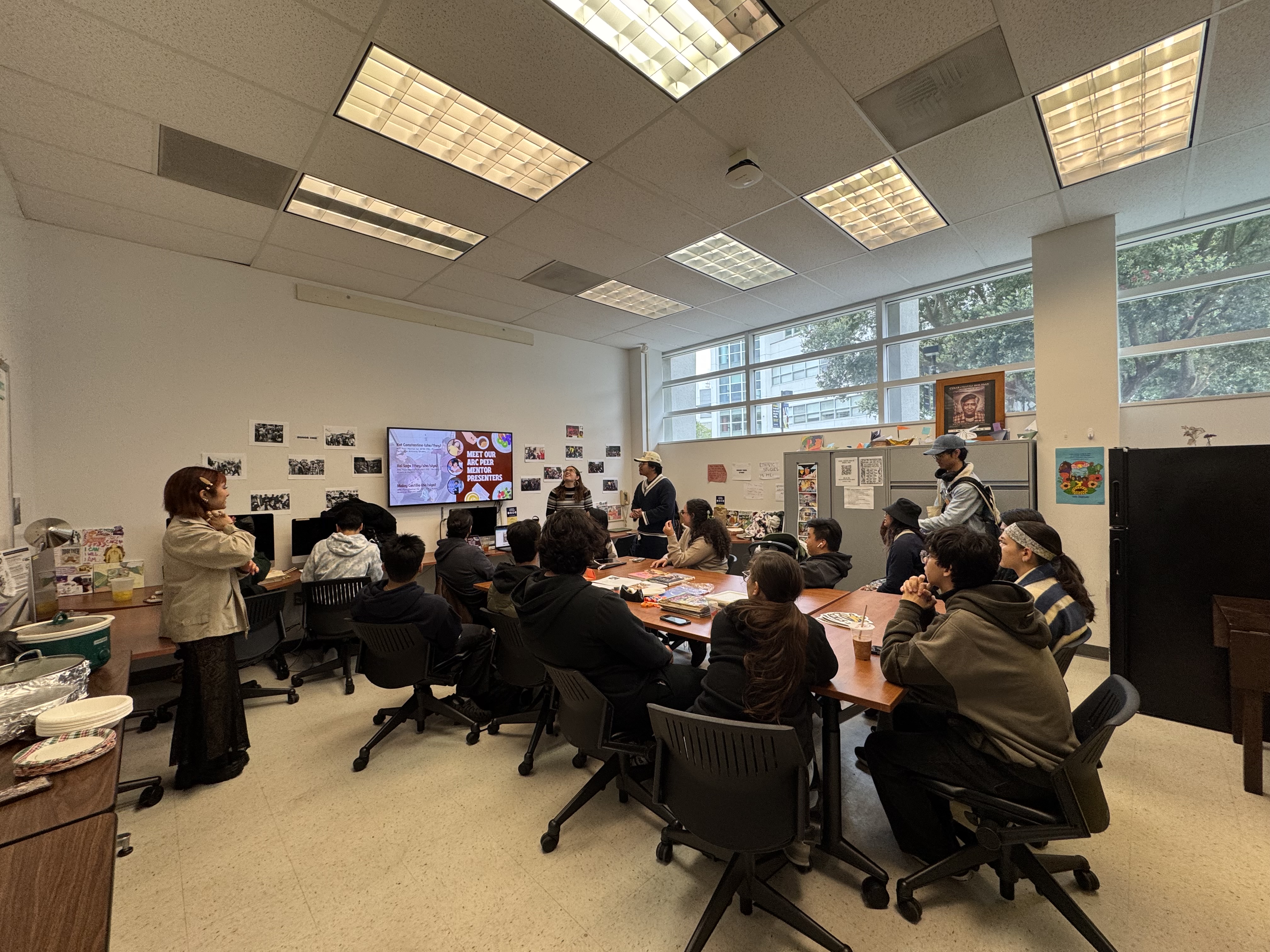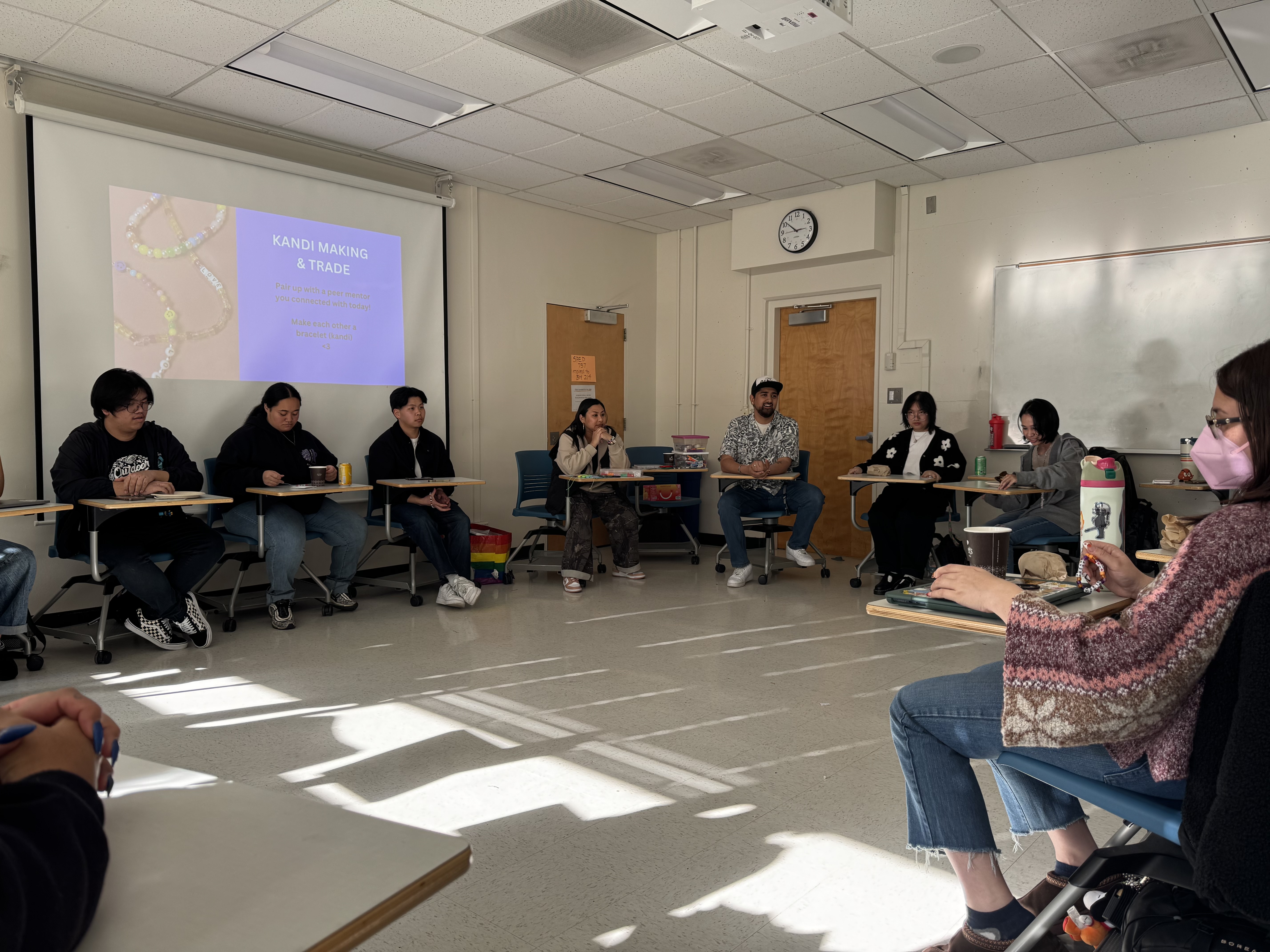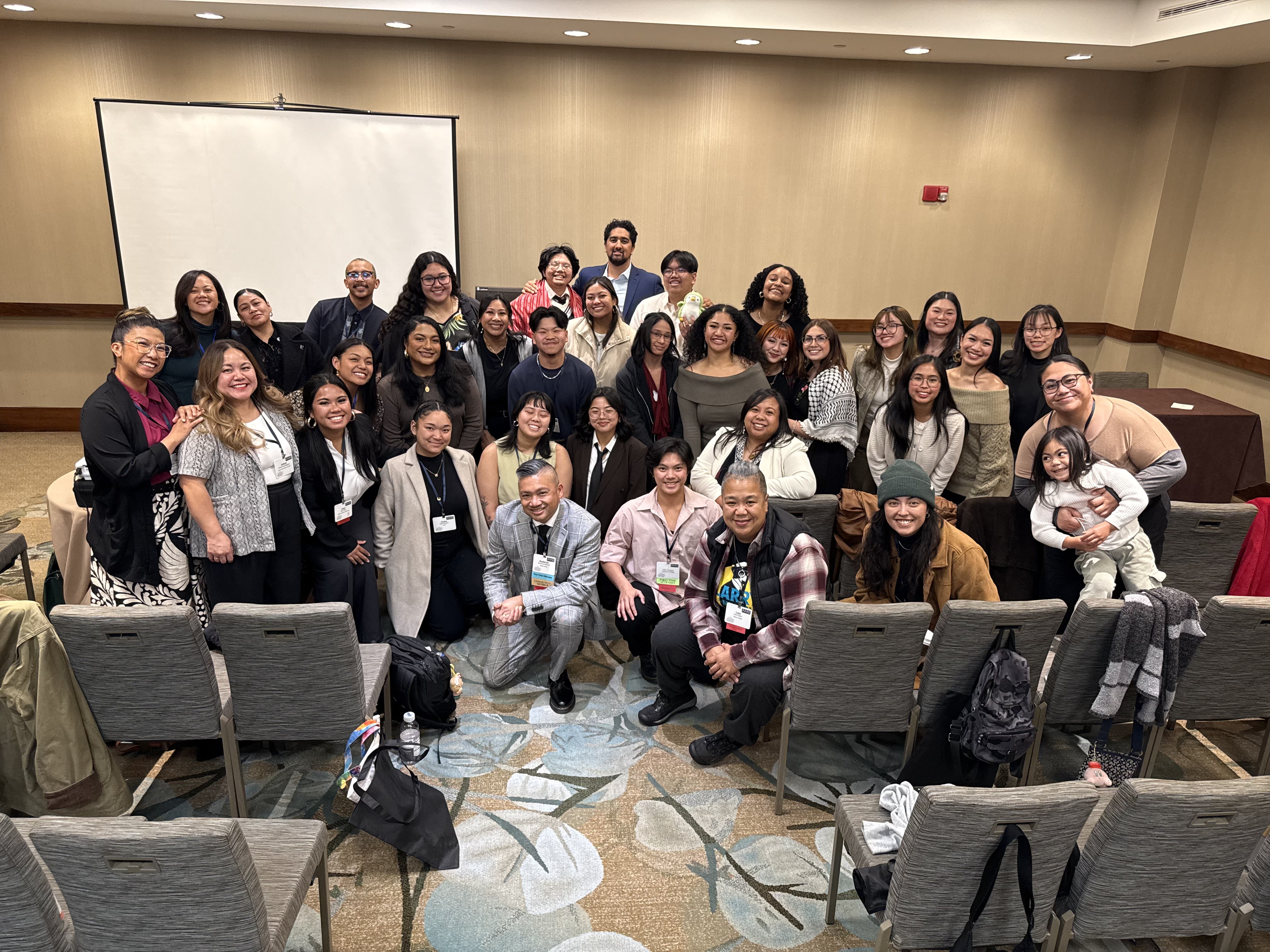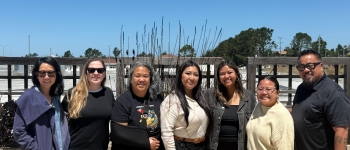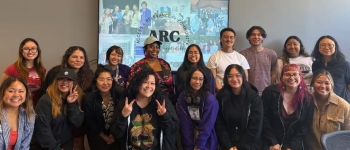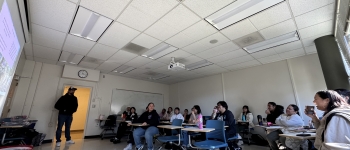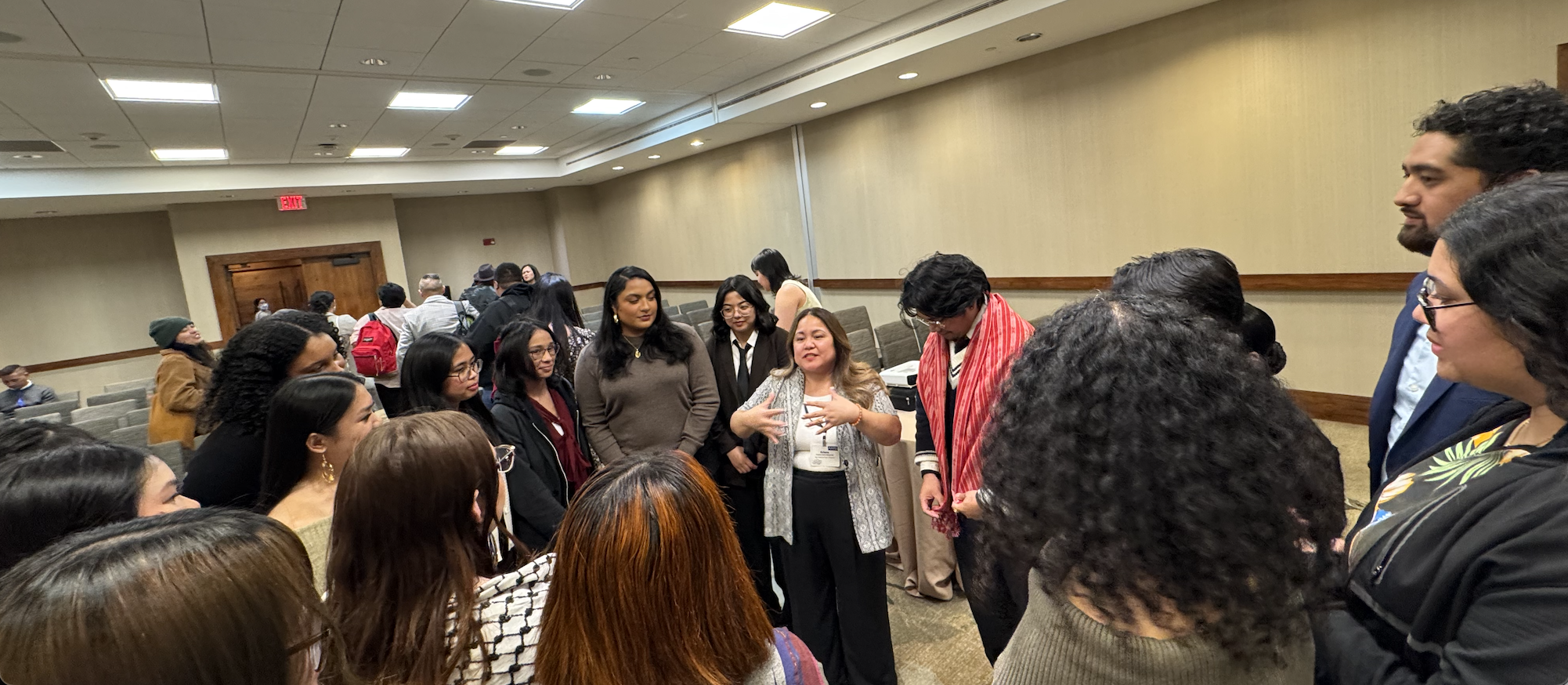
Funded by the Department of Education (DOE), Asian American Native American Pacific Islander Serving Institution (AANAPISI) grant, The Access, Relevance, Community (ARC) Project has been carefully designed to address critical needs and barriers to underserved Asian American and Pacific Islander (AA&PI) and low-income (LI) students’ success. Grounded in Ethnic Studies founding principles of self-determination, access, retention and community, and community responsive pedagogy, the project strives to create a community where students feel a sense of belonging and hope for the future that moves them forward as they continue towards completing their undergraduate studies.
Through a collaboration between the SFSU CoES Asian American Studies (AAS) department and San Mateo County Community College District (SMCCCD), the ARC project will address student needs by implementing an array of complementary strategies in the areas of student belonging and community, transfer student enrollment pathways, and transfer student transition to careers.
The proposed project builds on a theoretical framework of Access, Relevance, and Community (ARC).
Access: At the heart of the ARC program is its connection to the founding goals of the Black Student Union and the Third World Liberation Front Strike at SFSU which called on the university to provide access, relevance, and community (ARC) (Collier and Gonzales, 2009). The ARC of Ethnic Studies is grounded within self-determination aimed at challenging Eurocentric curriculum in education and using Ethnic Studies as a lens to respond to educational inequities (SFSU Communications, 2019). The ARC of Ethnic Studies fuels this initiative’s purpose by authoring and implementing a curriculum, services, and programs that center on the experiences of AAPI students to become critically community-engaged scholars.
Relevance: ARC will be a mechanism to transform campus climate, culture and curriculum to prioritize wellness and hope. Students who learn Ethnic Studies not only improve outcomes but also their self-esteem, self- determination and civic and community engagement.
- The ARC project will address relevant education by using Community Responsive Pedagogy (CRP) where students learn and appreciate their cultural and social capital to discover a sense of purpose and act toward social justice (Ginwright and Cammarota, 2007; Yosso, 2005, Tintiangco-Cubales, Duncan-Andrade, 2021). Community relevant and responsive education helps students develop critical thinking, action-oriented goals and leadership skills that can help with their aspirations for themselves, families and communities. ARC draws from philosophies, approaches, and practices of indigenous and contemporary Ethnic Studies understandings and scholarship (Meyer, 2003; Strobel, 2001) CRP is, “an equity-centered approach to education that is responsive to the material conditions that are particular to a student’s lived experience in a community and the histories that created that experience. The goal of CRP is to use education as a vehicle for liberation through the awakening of students' critical consciousness that leads to actions that promote wellness through racial and social justice in their personal lives, families, communities, and our world.” (Tintiangco-Cubales, Duncan-Andrade, 2021). This project will be a mechanism to transform our campus climate, culture and curriculum to prioritize wellness and hope. Culturally relevant and responsive education not only improves outcomes but also their self-esteem, self- determination and civic and community engagement.
Community: Taking collective action toward sustainable social justice is a collaborative process in transforming the student’s community and understanding of the world (Daus-Magbual, 2011). Building on the definition of community action, it is necessary to foster relationships with teachers and students that influence their decolonization process, understand the changing context within the community, and serve as an education leadership pathway that sustains wellness. Students will develop the capacity to organize around pressing issues that affect their community’s health. These relationships between teachers and students will contribute to their personal and political transformation (Daus-Magbual, 2011). At the heart of the community is the individual, and so to have a strong community, healthy individuals need to be mentally, physically, and spiritually balanced. The ARC project focuses on supporting teachers and students on (a) mental health and well-being, (b) academic and career counseling and guidance, and (c) community building (inside/outside classroom). The building of a critical community and transformative relationships serves as a space where students are learning to grow and foster their community.
